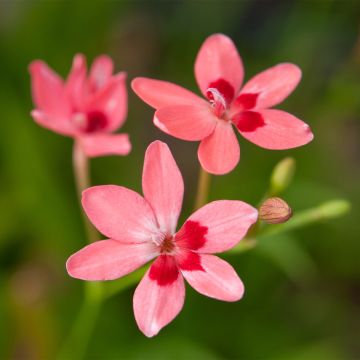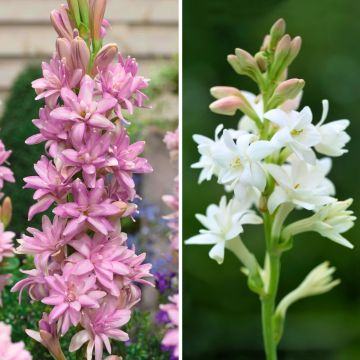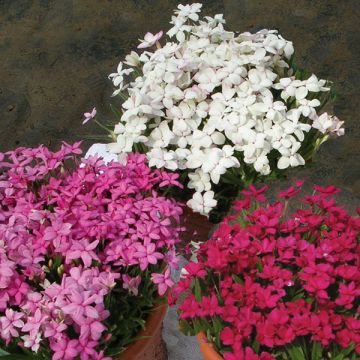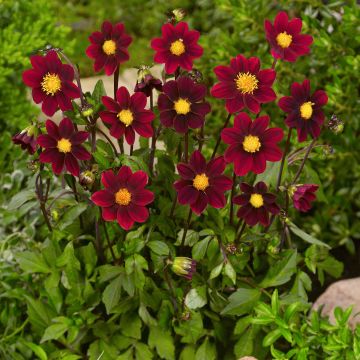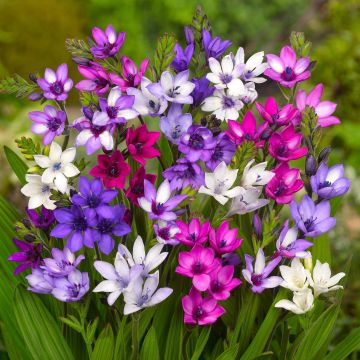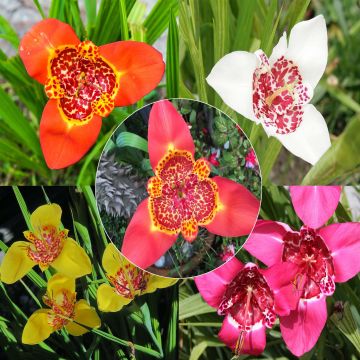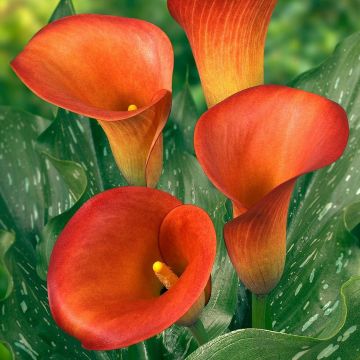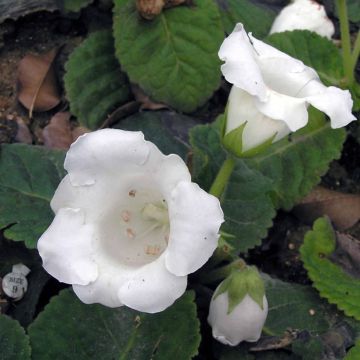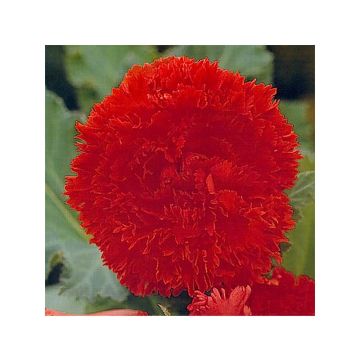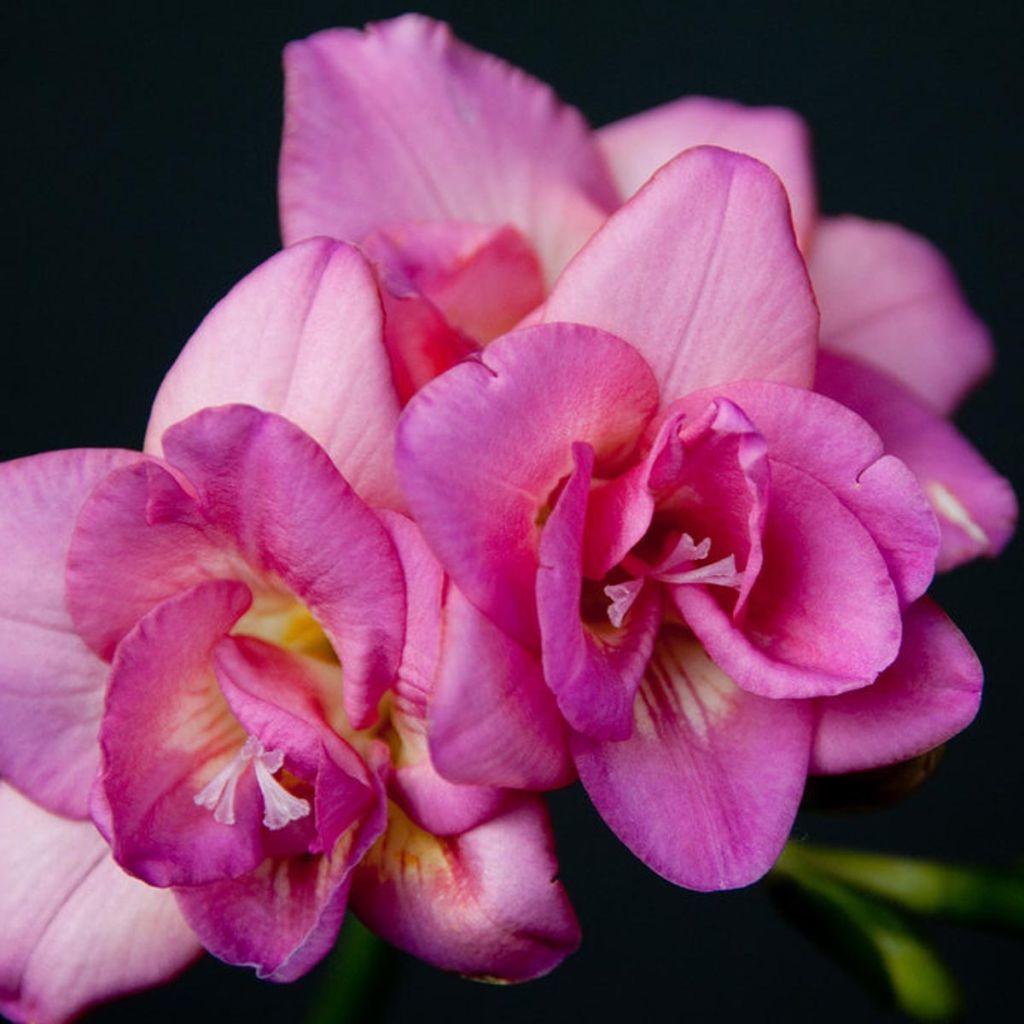

Freesia double rose
Freesia Double Rose
Freesia hybrida Double Rose
Freesia, Hybrid Freesia
The leaves have come out nicely, but to my surprise only three have flowered. One red and two yellow. No sign of any pink!
Aline, 23/11/2025
Special offer!
Receive a €20 voucher for any order over €90 (excluding delivery costs, credit notes, and plastic-free options)!
1- Add your favorite plants to your cart.
2- Once you have reached €90, confirm your order (you can even choose the delivery date!).
3- As soon as your order is shipped, you will receive an email containing your voucher code, valid for 3 months (90 days).
Your voucher is unique and can only be used once, for any order with a minimum value of €20, excluding delivery costs.
Can be combined with other current offers, non-divisible and non-refundable.
Home or relay delivery (depending on size and destination)
Schedule delivery date,
and select date in basket
This plant carries a 6 months recovery warranty
More information
We guarantee the quality of our plants for a full growing cycle, and will replace at our expense any plant that fails to recover under normal climatic and planting conditions.
Would this plant suit my garden?
Set up your Plantfit profile →
Description
Freesia Double Rose is a cormous plant with a spreading habit supporting a unilateral flowering. The double magenta flowers in the shape of a funnel have a sweet scent reminiscent of jasmine.
Freesias, also known as cape lilies, are native to East Africa, from Kenya to South Africa. They were named by Danish botanist Ecklon in honour of one of his brightest students, Dr. Freese, who was a physician, pharmacist, and botanist. These beautiful plants belong to the Iridaceae family. Their floral stems give them a spreading and highly branched habit.
Freesia Double Rose has deciduous, tender green foliage that is upright and sword-shaped with a sharp tip. The leaves and flowering stems reach a height of about 40cm (16in). The inflorescence develops from May to July. It grows at the end of a convex flowering stem. This unilateral flowering consists of 8 to 10 magenta-coloured funnel-shaped flowers, each measuring 2 to 3cm (1in). They are actinomorphic, meaning they are radially symmetrical. Each plant will have 4 to 5 flowering stems. The flowers have a sweet scent reminiscent of jasmine. Some may even describe it as having fragrant tones of neroli with spicy and honeyed undertones. A luxurious and exotic experience is guaranteed with this beautiful freesia with double flowers. It is a cormous plant. Unlike true bulbs, the corm exhausts all its reserves during each seasonal cycle and is replaced each time by a new one. Its corm is conical and measures about 1 to 2cm (1in) at its base. It should be planted with the apex facing upwards at a depth of 5cm (2in). New shoots will emerge more easily.
Freesias are frost-sensitive and cannot tolerate temperatures below -3°C (26.6°F). If you want to grow them in open ground, make sure that the last frosts have passed before planting. Plant them in a sunny location. They prefer moist, well-drained, sandy to rocky soils. They do not appreciate limestone. They can be paired with orange, yellow, or red crocosmias in rock gardens or border plantings. Whether in the ground or in a pot, they can be combined with other elegant plants, such as agapanthus, tuberose, crinum, moorea, and lycoris.
Freesias are perfect in elaborate floral arrangements. Once the first flowers have bloomed, you can prune the floral stem and keep the flowers fresh for about three weeks.
Report an error about the product description
Plant habit
Flowering
Foliage
Botanical data
Freesia
hybrida
Double Rose
Iridaceae
Freesia, Hybrid Freesia
Cultivar or hybrid
Other Freesia
View all →Planting and care
Plant in a frost-free area, in well-drained soil.
Pot planting: plant 5 to 7 bulbs per 15cm (6in) diameter pot. Use a mixture of sand, compost, and turf.
Garden planting: freesias are sensitive to cold and should be planted after the risk of frost has passed. The soil should be well-drained.
While the leaves are green, the plant replenishes its reserves for the following year. At the end of the season, let the foliage turn yellow and dry. Then dig up the corms and store them in a dry and cool place, protected from frost. Replant them in spring.
Planting period
Intended location
Care
-
, onOrder confirmed
Reply from on Promesse de fleurs
Similar products
Haven't found what you were looking for?
Hardiness is the lowest winter temperature a plant can endure without suffering serious damage or even dying. However, hardiness is affected by location (a sheltered area, such as a patio), protection (winter cover) and soil type (hardiness is improved by well-drained soil).

Photo Sharing Terms & Conditions
In order to encourage gardeners to interact and share their experiences, Promesse de fleurs offers various media enabling content to be uploaded onto its Site - in particular via the ‘Photo sharing’ module.
The User agrees to refrain from:
- Posting any content that is illegal, prejudicial, insulting, racist, inciteful to hatred, revisionist, contrary to public decency, that infringes on privacy or on the privacy rights of third parties, in particular the publicity rights of persons and goods, intellectual property rights, or the right to privacy.
- Submitting content on behalf of a third party;
- Impersonate the identity of a third party and/or publish any personal information about a third party;
In general, the User undertakes to refrain from any unethical behaviour.
All Content (in particular text, comments, files, images, photos, videos, creative works, etc.), which may be subject to property or intellectual property rights, image or other private rights, shall remain the property of the User, subject to the limited rights granted by the terms of the licence granted by Promesse de fleurs as stated below. Users are at liberty to publish or not to publish such Content on the Site, notably via the ‘Photo Sharing’ facility, and accept that this Content shall be made public and freely accessible, notably on the Internet.
Users further acknowledge, undertake to have ,and guarantee that they hold all necessary rights and permissions to publish such material on the Site, in particular with regard to the legislation in force pertaining to any privacy, property, intellectual property, image, or contractual rights, or rights of any other nature. By publishing such Content on the Site, Users acknowledge accepting full liability as publishers of the Content within the meaning of the law, and grant Promesse de fleurs, free of charge, an inclusive, worldwide licence for the said Content for the entire duration of its publication, including all reproduction, representation, up/downloading, displaying, performing, transmission, and storage rights.
Users also grant permission for their name to be linked to the Content and accept that this link may not always be made available.
By engaging in posting material, Users consent to their Content becoming automatically accessible on the Internet, in particular on other sites and/or blogs and/or web pages of the Promesse de fleurs site, including in particular social pages and the Promesse de fleurs catalogue.
Users may secure the removal of entrusted content free of charge by issuing a simple request via our contact form.
The flowering period indicated on our website applies to countries and regions located in USDA zone 8 (France, the United Kingdom, Ireland, the Netherlands, etc.)
It will vary according to where you live:
- In zones 9 to 10 (Italy, Spain, Greece, etc.), flowering will occur about 2 to 4 weeks earlier.
- In zones 6 to 7 (Germany, Poland, Slovenia, and lower mountainous regions), flowering will be delayed by 2 to 3 weeks.
- In zone 5 (Central Europe, Scandinavia), blooming will be delayed by 3 to 5 weeks.
In temperate climates, pruning of spring-flowering shrubs (forsythia, spireas, etc.) should be done just after flowering.
Pruning of summer-flowering shrubs (Indian Lilac, Perovskia, etc.) can be done in winter or spring.
In cold regions as well as with frost-sensitive plants, avoid pruning too early when severe frosts may still occur.
The planting period indicated on our website applies to countries and regions located in USDA zone 8 (France, United Kingdom, Ireland, Netherlands).
It will vary according to where you live:
- In Mediterranean zones (Marseille, Madrid, Milan, etc.), autumn and winter are the best planting periods.
- In continental zones (Strasbourg, Munich, Vienna, etc.), delay planting by 2 to 3 weeks in spring and bring it forward by 2 to 4 weeks in autumn.
- In mountainous regions (the Alps, Pyrenees, Carpathians, etc.), it is best to plant in late spring (May-June) or late summer (August-September).
The harvesting period indicated on our website applies to countries and regions in USDA zone 8 (France, England, Ireland, the Netherlands).
In colder areas (Scandinavia, Poland, Austria...) fruit and vegetable harvests are likely to be delayed by 3-4 weeks.
In warmer areas (Italy, Spain, Greece, etc.), harvesting will probably take place earlier, depending on weather conditions.
The sowing periods indicated on our website apply to countries and regions within USDA Zone 8 (France, UK, Ireland, Netherlands).
In colder areas (Scandinavia, Poland, Austria...), delay any outdoor sowing by 3-4 weeks, or sow under glass.
In warmer climes (Italy, Spain, Greece, etc.), bring outdoor sowing forward by a few weeks.






























